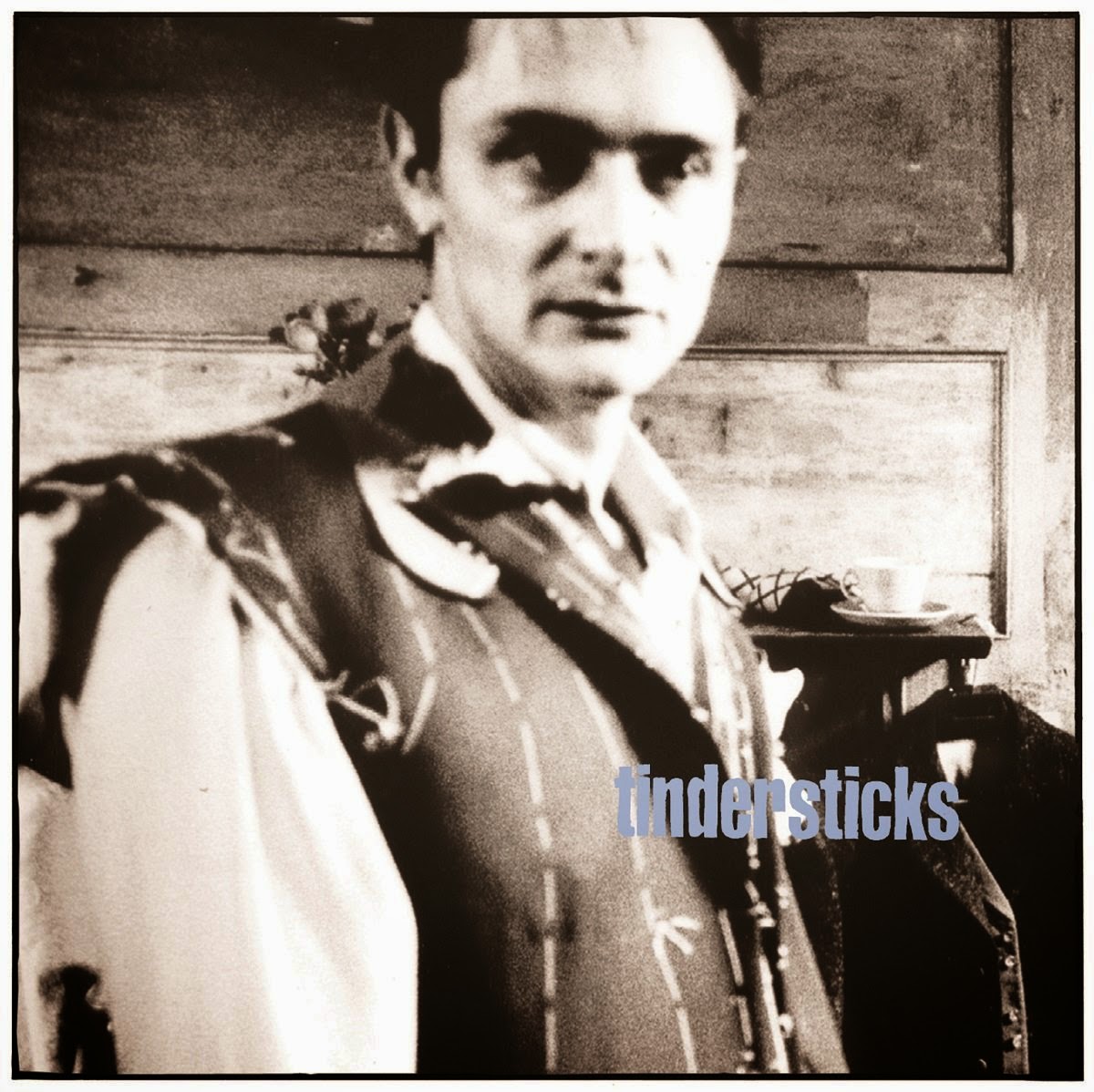Album: Tindersticks (Second Album)
Artist: Tindersticks
Born: Nottingham
Released: April 1995
Genre: Baroque
Before Britpop, the Tindersticks might have stood a chance of success in this country. In 1993, their first album (also called Tindersticks) was voted as Melody Maker's album of the year, and their second was even better. The Nottingham-based sextet offered an orchestral, baroque sound at odds with the noisy, lo-fi times and this partly explains why the Tindersticks are so highly praised in Europe but have such a small (but devoted) following at home. In fact, my first introduction to the band was as a foreign student in France in 1999, after reading a review of Simple Pleasure in Les Inrocks. The French music magazine called them the "most elegant band in England", capable of building musical labyrinths in which losing yourself is one of the greatest earthly pleasures. Stuart Staples' syrupy baritone, the opulent strings, the intensity of the lyrics and the intellectual approach; it's no surprise that early masterpieces like City Sickness (1993) gained a wider audience in France than in Britain. 1995 was the band's most productive year, following up the release of this album with single, The Smooth Sounds of Tindersticks, which includes a brilliant cover of Pavement's Here on one side and Harry's Dilemma, a spoken narrative by bassist Mark Colwill about a depressed dog, on the other.
The lead single, No More Affairs, is typical of the Tindersticks sound, heavily indebted to the smoky chansons of Jacques Brel and Scott Walker. The video was filmed at south London's stunning Rivoli Ballroom and there's also a French version of the song, Plus de Liaisons. As well as the shorter songs, I also love the record's long, layered arrangements like My Sister, which is enhanced by Staples' dark humour ("We buried her when she was 32 / me and my aunt, the vicar and the man who dug the hole / she said she didn't want to be cremated / and wanted a cheap coffin so the worms could get to her quickly"). Tiny Tears is another early highlight on the record and was used to memorable effect in the first season of The Sopranos. There's always been a filmic quality to the Tindersticks' music, and the group's relationship with film director, Claire Denis, scoring five of her films (including the brilliant 35 Shots of Rum), is testament to their skill at matching sounds with narratives. Other highlights on the record include Travelling Light, an incredibly moving vocal duet with Carla Torgerson of The Walkabouts, and the majestic She's Gone. There's so much to explore in the Tindersticks' magnificent back catalogue, including the moody Waiting For The Moon (2003) and more recent efforts like The Something Rain (2012), but this is still the best place to start.
Before Britpop, the Tindersticks might have stood a chance of success in this country. In 1993, their first album (also called Tindersticks) was voted as Melody Maker's album of the year, and their second was even better. The Nottingham-based sextet offered an orchestral, baroque sound at odds with the noisy, lo-fi times and this partly explains why the Tindersticks are so highly praised in Europe but have such a small (but devoted) following at home. In fact, my first introduction to the band was as a foreign student in France in 1999, after reading a review of Simple Pleasure in Les Inrocks. The French music magazine called them the "most elegant band in England", capable of building musical labyrinths in which losing yourself is one of the greatest earthly pleasures. Stuart Staples' syrupy baritone, the opulent strings, the intensity of the lyrics and the intellectual approach; it's no surprise that early masterpieces like City Sickness (1993) gained a wider audience in France than in Britain. 1995 was the band's most productive year, following up the release of this album with single, The Smooth Sounds of Tindersticks, which includes a brilliant cover of Pavement's Here on one side and Harry's Dilemma, a spoken narrative by bassist Mark Colwill about a depressed dog, on the other.
The lead single, No More Affairs, is typical of the Tindersticks sound, heavily indebted to the smoky chansons of Jacques Brel and Scott Walker. The video was filmed at south London's stunning Rivoli Ballroom and there's also a French version of the song, Plus de Liaisons. As well as the shorter songs, I also love the record's long, layered arrangements like My Sister, which is enhanced by Staples' dark humour ("We buried her when she was 32 / me and my aunt, the vicar and the man who dug the hole / she said she didn't want to be cremated / and wanted a cheap coffin so the worms could get to her quickly"). Tiny Tears is another early highlight on the record and was used to memorable effect in the first season of The Sopranos. There's always been a filmic quality to the Tindersticks' music, and the group's relationship with film director, Claire Denis, scoring five of her films (including the brilliant 35 Shots of Rum), is testament to their skill at matching sounds with narratives. Other highlights on the record include Travelling Light, an incredibly moving vocal duet with Carla Torgerson of The Walkabouts, and the majestic She's Gone. There's so much to explore in the Tindersticks' magnificent back catalogue, including the moody Waiting For The Moon (2003) and more recent efforts like The Something Rain (2012), but this is still the best place to start.

Comments